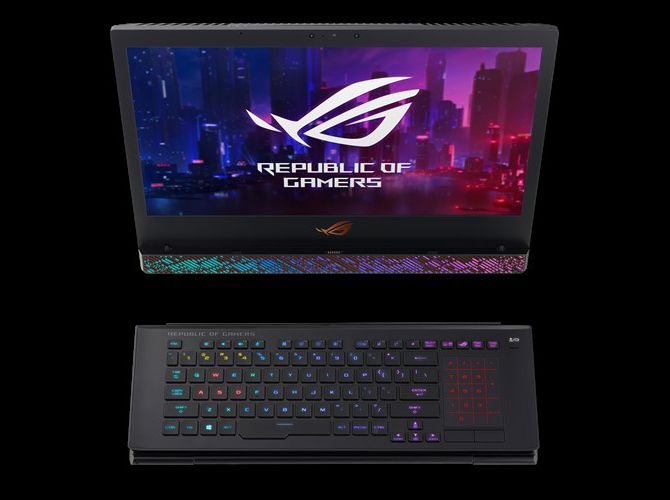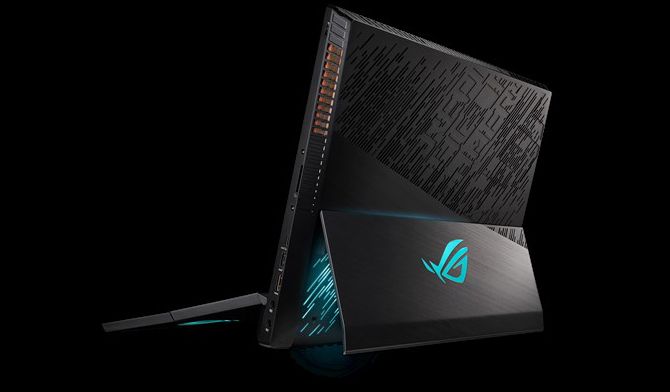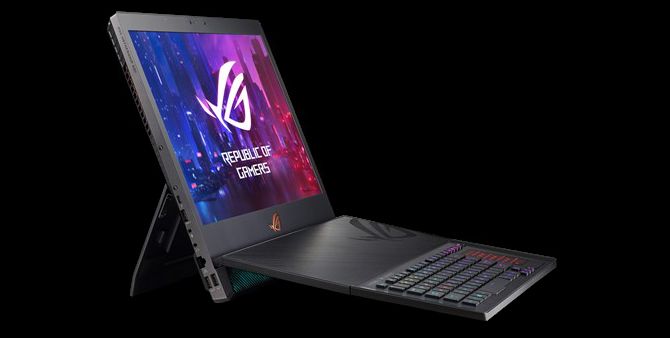The battery lasts a little over four hours on a single charge, says Chirinjibi Thapa.

With the ROG Mothership (cost, Rs 4.5 lakhs), Asus claims to have reimagined the gaming laptop.
The result is a powerful CPU-GPU combination with other striking configurations to elevate the gaming experience.
Here's how the laptop performs on major fronts:

Design (4.5/5)
Right off the bat, you can tell this Mothership is something else.
The desktop replacement laptop, when shut, spans 16.1 x 12.6 x 1.2 inches and weighs a whopping 4.8 kg (good luck lugging it around).
The top has a black brushed aluminium finish with an ROG logo at the bottom.
And you don't flip the Mothership open. Rather, like some majestic intergalactic spacecraft, the laptop sets up in stages.
First, you stand the system up, open the kickstand to set up the monitor and then lower the front panel, which reveals a keyboard attached to the monitor with a deck.
The keyboard can be detached from the main system to be used from a distance.
The monitor fits a 17.3-inch screen bordered by thick bezels, which accommodate a lot of vents and ports.
There are in all six USB ports, five of which support the 3.1 Gen 2 standard.
Two ports support Type-C form factor.
Besides, there is an HDMI output, two audio jacks, a card reader and a Kensington Lock port.
The Mothership's keyboard is magnetically attached to the main system, but in a slightly inclined manner that may tire your wrists if the surface is mounted too high.
Detached, the Wi-Fi keyboard also disconnected on a few occasions.
However, the typing experience is good.
The four 4-watt speakers at the monitor's bottom directly face the user and deliver a dynamic performance.

Performance (4/5)
The laptop's G-Sync displays are powered by the Nvidia GeForce RTX 2080 GPU and 8-core Intel Core i9-9800HK processor.
This is paired with 64GB DDR-4 RAM, three SSDs in RAID 0 and 2TB SSD storage.
It's available in two display options, both with a 17.3-inch, 1920 x 1080 resolution panel.
The first is the 4K UHD IPS panel with a 60Hz refresh rate and the second is the 1080p IPS panel with a 144Hz refresh rate.
I reviewed the latter model.
The high refresh rate enables even the tough games to run at a higher frame rate with quick response time.
I could play both Halo: Reach and FIFA 20 on the system on max graphics with no discernible lags.
Laptops often face the problem of overheating, usually because the vents sit at the bottom.
Here, with the vents facing upwards, overheating is never an issue.
Asus has fitted two fans and eight heat pipes on the Mothership.
But a high level of performance means loud fans. While gaming, they tend to go into overdrive. So, you might want to have a decent headset on.
The battery lasts a little over four hours on a single charge, which is not bad.

Verdict (4/5)
The Asus ROG Mothership is a peek into the future of gaming laptops.
It might not be a great hit in a price-conscious market like India (it hasn't yet been launched here).
But then Asus is probably only targeting a niche audience anyway.
*Image is used for representational purpose only











